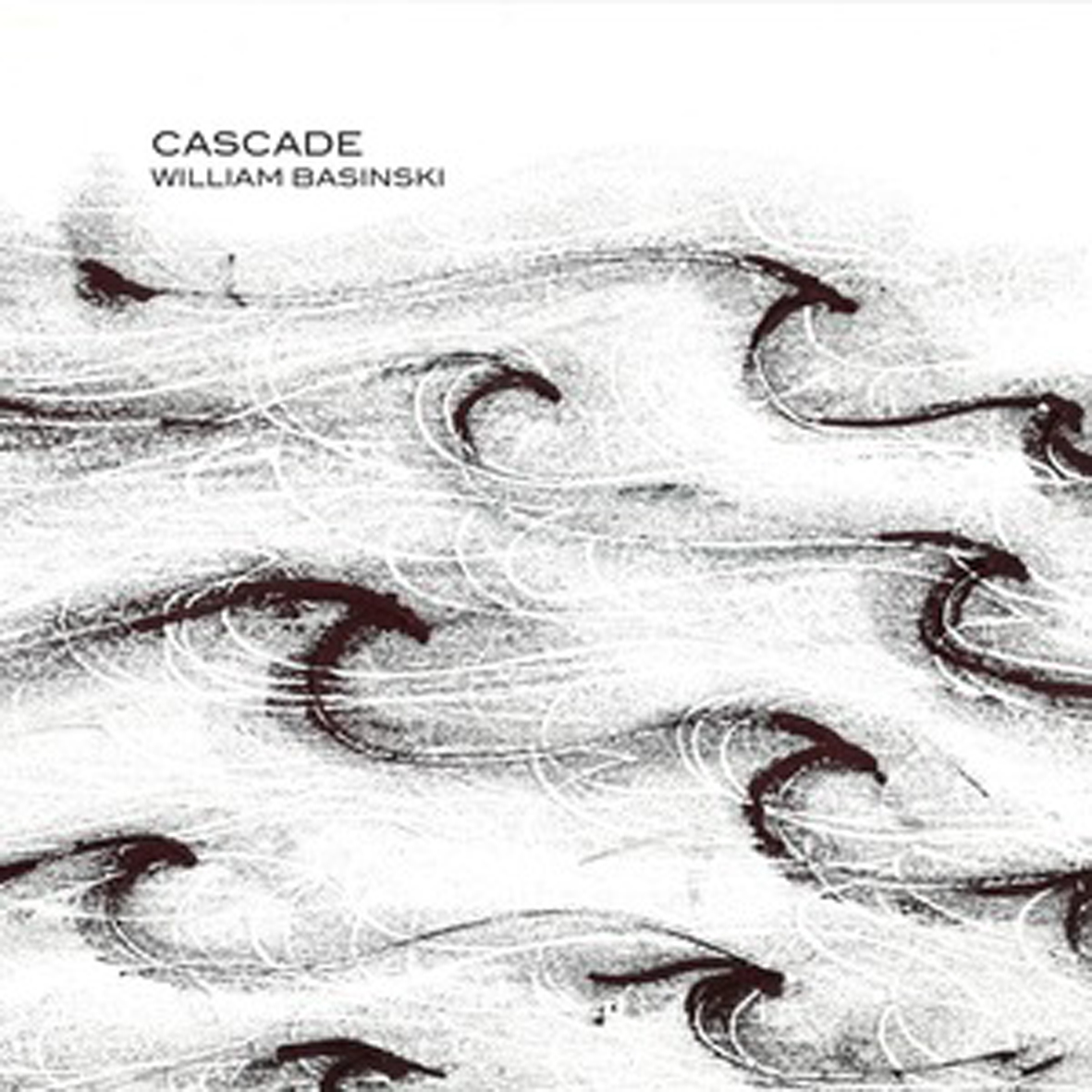William Basinski, "Cascade"
 This is simultaneously a highly unusual and an extremely representative addition to William Basinski’s impressive discography: on one hand, it is yet another composition characteristically built upon a single brief and decaying tape loop, but it is also a comparatively unadulterated and "raw" prelude to the forthcoming Deluge album.  Both albums are built from the same tape snippet, but Deluge feeds its simple piano motif through a series of varying feedback loops.  On Cascade, that motif is simply allowed to endlessly repeat into rippling, hypnotic perfection without intervention.
This is simultaneously a highly unusual and an extremely representative addition to William Basinski’s impressive discography: on one hand, it is yet another composition characteristically built upon a single brief and decaying tape loop, but it is also a comparatively unadulterated and "raw" prelude to the forthcoming Deluge album.  Both albums are built from the same tape snippet, but Deluge feeds its simple piano motif through a series of varying feedback loops.  On Cascade, that motif is simply allowed to endlessly repeat into rippling, hypnotic perfection without intervention.
The artistry of William Basinski is certainly a curious thing, as he has achieved an enormous amount of mileage out of very little actual musical content.  Cascade is a prime example of that enigmatic alchemy, as it is a 40-minute album made from roughly a 10-second snippet of delicately melancholy piano.  And, of course, it is highly likely that the snippet in question was actually recorded more than 30 years ago.  It took me a very long time to warm to that aesthetic–I loved the first Disintegration Loops album, but the flood of similar albums in its wake bordered on the absurd and made me wonder if Basinski was actually some kind of charlatan/troll genius who found a way to make a viable career out of endlessly regurgitating forgotten studio scraps.  Over the last few years, however, I have gradually come to embrace Basinski as some kind of Zen genius/purist visionary.  He is definitely not an infallible one, but when he hits the mark, he achieves a kind of perfect, simple beauty that cannot be found elsewhere.
Cascade is an album where Basinski most definitely hits the mark: it never changes or evolves, it just blearily, hauntingly, and endlessly ripples and shimmers and it is wonderful.  Part of that magic is undeniably due to the elegant, bittersweet melody of the loop itself, as there is a definite artistry in isolating a poignant snatch of music that can be compellingly repeated forever (seemingly, anyway).  A greater part of Cascade's success, however, is due to William’s treatment of that loop, as its liquid-y reverb forms an increasingly complex after-image of subtle overtones, harmonies, and gentle oscillations.  I suspect tape decay deserves a lot of credit as well for its murky and hissing enhancement of William's dreamweb.  That might seem a somewhat obvious intersection of simple acts, but the cumulative effect is a deceptively powerful one: Cascade does not feel at all like the work of a human–it feels like some kind of organic, otherworldly, and self-sustaining sonic organism slowly drifting through some imaginary space.  Sadly, I cannot think of a catchy name for such a genre, but whatever it is, Basinski certainly has it locked the hell down quite definitively.  To my ears, Cascade is a flawless distillation of everything that William Basinski excels at.  Consequently, I am very eager to hear what Deluge does with this base material, as it seems destined to either transform a minor masterpiece into a major one or to unwittingly break its fragile spell with too much added artifice.  I am nervously hoping for the former.
 



